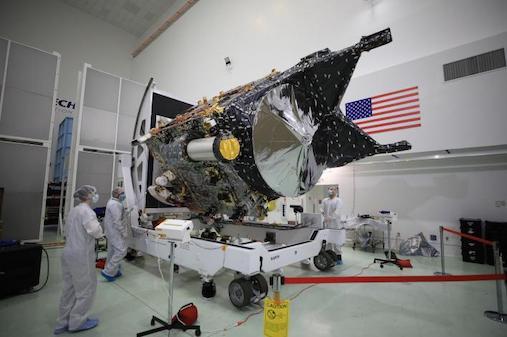
CAPE CANAVERAL—A $1.2 billion mission to learn more about the metal-rich asteroid Psyche is on track for launch on Oct. 5 aboard a SpaceX Falcon Heavy rocket, NASA said on Sept. 6.
“We’re really looking forward to the launch,” Project Manager Henry Stone, with NASA’s Jet Propulsion Laboratory in Pasadena, California, told reporters during a news conference.
Over the next two weeks, the Psyche spacecraft is expected to be encapsulated into its payload fairing and moved to SpaceX processing facilities at Kennedy Space Center. The 20-day launch period opens at 10:38 a.m. EDT on Oct. 5.
Outfitted with a solar-electric propulsion system, Psyche is scheduled to take six years to reach its namesake—the 173-mi.-wide Psyche asteroid located in the main asteroid belt.
Scientists believe the asteroid may be part of the core of a planetesimal, the building block of an early rocky planet. The mission is NASA’s first to a planetary body that is neither primarily rock or ice, but metal. The research is focused on learning more about how rocky bodies formed, including Earth.
Scientists suspect Psyche lost its rock cover during violent collisions with other bodies when the Solar System was just 10 million to 20 million years old. Computer simulations show repeated crashes could have left behind a nickel and iron world.
The spacecraft is designed to spend about 26 months orbiting Psyche to collect images and other data to help scientists understand its composition, history and evolution. The probe is outfitted with three science instruments: an imager, magnetometer, and a gamma-ray and neutron spectrometer.
The mission includes a deep-space optical communications demonstration to test high-speed laser communications for possible future missions.
NASA had hoped to launch the Psyche mission in 2022, but delayed it due to an issue verifying the flight-control software. The delay added about $215 million to the project, which is now costing NASA about $1.2 billion.





